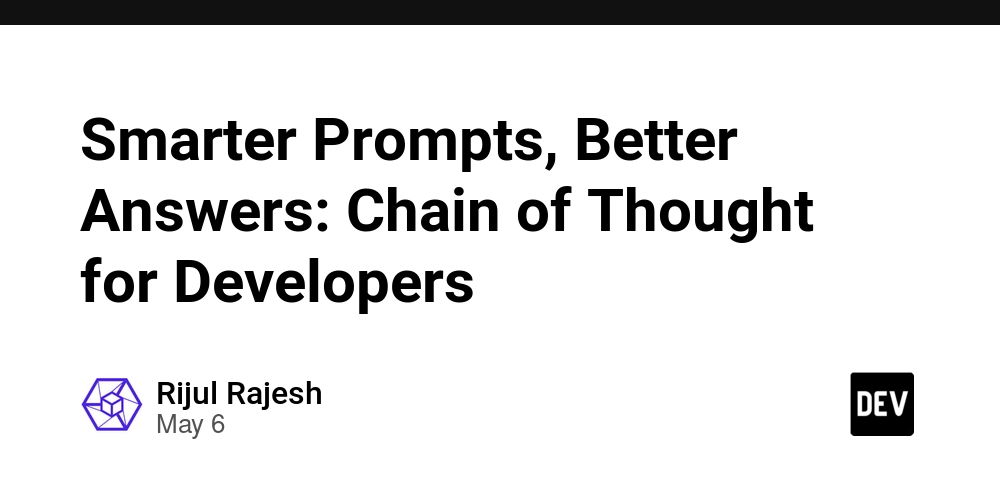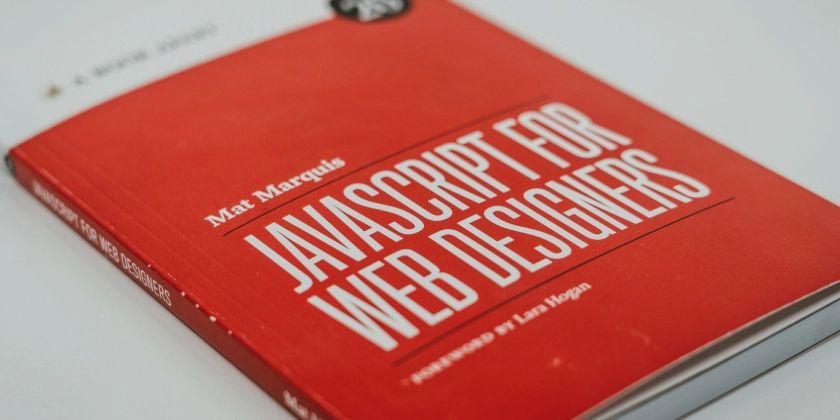React's Midlife Crisis: Why It Might Be Time for a New JavaScript Sweetheart in 2025
The JavaScript Landscape: A Dev's Rollercoaster Ride Hey there, fellow code wranglers! Pull up a chair, grab your favorite caffeinated beverage, and let's chat about something that's been on my mind lately. You know how we all have that one friend who peaked in high school and just can't seem to move on? Well, I've got a sneaking suspicion that React might be turning into that friend in the JavaScript world. Now, don't get me wrong. React has been our trusty sidekick for years. It's been there through thick and thin, helping us build awesome user interfaces and making our developer lives a whole lot easier. But as we look ahead to 2025, I can't help but wonder: Is React still going to be the cool kid on the block, or is it time to start swiping right on some new frameworks? The Signs of React's Midlife Crisis 1. The "It's Complicated" Relationship Status Remember when we first met React? It was love at first sight. Simple, declarative, and oh-so-elegant. But lately, things have gotten... complicated. What started as a straightforward library has grown into a complex ecosystem. These days, you need to be a detective to figure out the best way to handle state management, routing, and data fetching. // React in 2015 const App = () => Hello, World!; // React in 2025 (probably) const App = () => { const [state, setState] = useComplicatedStateManager(); const data = useSuperComplexDataFetcher(); const theme = useContextProviderConsumerHOCWrapper(); return ( Hello, Over-engineered World! ); }; Okay, I might be exaggerating a tiny bit, but you get the idea. The simplicity that once made React so appealing is starting to feel like a distant memory. 2. The Performance Potluck Back in the day, React was the speed demon of the JavaScript world. It made our apps zippy and responsive. But as our applications have grown more complex, we've started to see some cracks in the foundation. Virtual DOM diffing, once React's claim to fame, is starting to show its age. Other frameworks are coming up with more efficient ways to update the DOM, leaving React playing catch-up. It's like watching your favorite sports star slowly lose their edge – a little heartbreaking, isn't it? 3. The Framework Identity Crisis Is React a library or a framework? It's 2025, and we're still debating this! While React has been busy trying to figure out its place in the world, other solutions have stepped up to offer more opinionated, full-featured frameworks out of the box. Next.js, Gatsby, and Create React App have been great, but they've also highlighted a gap in React's core offering. It's like React is the cool parent who lets you do whatever you want, but sometimes you just need someone to tell you to eat your vegetables and go to bed on time. The New Kids on the Block So, if not React, then what? Here are a few contenders that might be stealing the spotlight in 2025: Svelte: This compiler-based framework has been turning heads with its simplicity and performance. It's like React went on a diet and got really into CrossFit. Solid: Taking React's good ideas and supercharging them with fine-grained reactivity. It's React's cooler, younger cousin who listens to indie bands you've never heard of. Qwik: Resumability is the new buzzword, and Qwik is all about it. It's like React, but with superpowers that let it pick up where it left off without missing a beat. The Next Big Thing: Let's face it, by 2025, there might be a new framework that makes all of these look like ancient history. The JavaScript world moves fast, and for all we know, we could all be coding in HoloScript for our new VR overlords. Why Change? The Winds of Web Development You might be thinking, "But React works fine for me! Why should I care?" Well, my friend, let me count the ways: Performance Pressures: As web apps become more complex and users more demanding, every millisecond counts. The framework that can squeeze out the best performance will have a leg up. Developer Experience: We spend most of our waking hours coding. Shouldn't we enjoy it? Frameworks that make our lives easier and more productive will naturally rise to the top. Evolving Web Standards: The web platform is constantly evolving. Frameworks that can best leverage new browser capabilities will have an advantage. The Rise of Edge Computing: As computing moves closer to the user, we need frameworks that can adapt to this new paradigm. AI Integration: Let's face it, AI is everywhere. Frameworks that play nice with AI-driven development tools might become the new favorites. The Silver Lining: React's Legacy Before you start panic-refactoring all your React projects, take a deep breath. React has taught us invaluable lessons about component-based architecture, unidirectional data flow, and declarative UI programming. These co

The JavaScript Landscape: A Dev's Rollercoaster Ride
Hey there, fellow code wranglers! Pull up a chair, grab your favorite caffeinated beverage, and let's chat about something that's been on my mind lately. You know how we all have that one friend who peaked in high school and just can't seem to move on? Well, I've got a sneaking suspicion that React might be turning into that friend in the JavaScript world.
Now, don't get me wrong. React has been our trusty sidekick for years. It's been there through thick and thin, helping us build awesome user interfaces and making our developer lives a whole lot easier. But as we look ahead to 2025, I can't help but wonder: Is React still going to be the cool kid on the block, or is it time to start swiping right on some new frameworks?
The Signs of React's Midlife Crisis
1. The "It's Complicated" Relationship Status
Remember when we first met React? It was love at first sight. Simple, declarative, and oh-so-elegant. But lately, things have gotten... complicated. What started as a straightforward library has grown into a complex ecosystem. These days, you need to be a detective to figure out the best way to handle state management, routing, and data fetching.
// React in 2015
const App = () => <h1>Hello, World!</h1>;
// React in 2025 (probably)
const App = () => {
const [state, setState] = useComplicatedStateManager();
const data = useSuperComplexDataFetcher();
const theme = useContextProviderConsumerHOCWrapper();
return (
<ThemeProvider theme={theme}>
<RouterWrapper>
<StateManager state={state} setState={setState}>
<DataProvider data={data}>
<h1>Hello, Over-engineered World!</h1>
</DataProvider>
</StateManager>
</RouterWrapper>
</ThemeProvider>
);
};
Okay, I might be exaggerating a tiny bit, but you get the idea. The simplicity that once made React so appealing is starting to feel like a distant memory.
2. The Performance Potluck
Back in the day, React was the speed demon of the JavaScript world. It made our apps zippy and responsive. But as our applications have grown more complex, we've started to see some cracks in the foundation.
Virtual DOM diffing, once React's claim to fame, is starting to show its age. Other frameworks are coming up with more efficient ways to update the DOM, leaving React playing catch-up. It's like watching your favorite sports star slowly lose their edge – a little heartbreaking, isn't it?
3. The Framework Identity Crisis
Is React a library or a framework? It's 2025, and we're still debating this! While React has been busy trying to figure out its place in the world, other solutions have stepped up to offer more opinionated, full-featured frameworks out of the box.
Next.js, Gatsby, and Create React App have been great, but they've also highlighted a gap in React's core offering. It's like React is the cool parent who lets you do whatever you want, but sometimes you just need someone to tell you to eat your vegetables and go to bed on time.
The New Kids on the Block
So, if not React, then what? Here are a few contenders that might be stealing the spotlight in 2025:
Svelte: This compiler-based framework has been turning heads with its simplicity and performance. It's like React went on a diet and got really into CrossFit.
Solid: Taking React's good ideas and supercharging them with fine-grained reactivity. It's React's cooler, younger cousin who listens to indie bands you've never heard of.
Qwik: Resumability is the new buzzword, and Qwik is all about it. It's like React, but with superpowers that let it pick up where it left off without missing a beat.
The Next Big Thing: Let's face it, by 2025, there might be a new framework that makes all of these look like ancient history. The JavaScript world moves fast, and for all we know, we could all be coding in HoloScript for our new VR overlords.
Why Change? The Winds of Web Development
You might be thinking, "But React works fine for me! Why should I care?" Well, my friend, let me count the ways:
Performance Pressures: As web apps become more complex and users more demanding, every millisecond counts. The framework that can squeeze out the best performance will have a leg up.
Developer Experience: We spend most of our waking hours coding. Shouldn't we enjoy it? Frameworks that make our lives easier and more productive will naturally rise to the top.
Evolving Web Standards: The web platform is constantly evolving. Frameworks that can best leverage new browser capabilities will have an advantage.
The Rise of Edge Computing: As computing moves closer to the user, we need frameworks that can adapt to this new paradigm.
AI Integration: Let's face it, AI is everywhere. Frameworks that play nice with AI-driven development tools might become the new favorites.
The Silver Lining: React's Legacy
Before you start panic-refactoring all your React projects, take a deep breath. React has taught us invaluable lessons about component-based architecture, unidirectional data flow, and declarative UI programming. These concepts are here to stay, no matter what framework is flavor of the month.
In fact, React's influence is so profound that many of the "new" frameworks are really just React's ideas evolved and refined. So in a way, even if React itself fades away, its spirit will live on in whatever comes next.
Wrapping Up: The Future is Bright (and Probably JavaScript-Flavored)
As we look ahead to 2025, the only thing we can be certain of is change. React might still be going strong, or it might be reminiscing about its glory days. Either way, the future of web development is exciting, and I can't wait to see what comes next.
Remember, frameworks come and go, but good developers are always in demand. Stay curious, keep learning, and don't be afraid to try new things. Who knows? You might be the one who creates the next big framework that makes React look like jQuery.
So, what do you think? Is React headed for retirement, or am I just having a premature midlife crisis on its behalf? Drop a comment below and let's chat. And hey, if you enjoyed this little journey into the future of web dev, why not follow me for more tech prognostications and the occasional JavaScript dad joke? I promise I'll try to keep the "I told you so"s to a minimum when 2025 rolls around.
Stay cool, stay coding, and may your builds always be green!
P.S. If you hit that follow button, I'll send you a virtual high-five and a coupon for one free framework prediction, redeemable in 2030. No refunds if I'm hilariously wrong!






































































